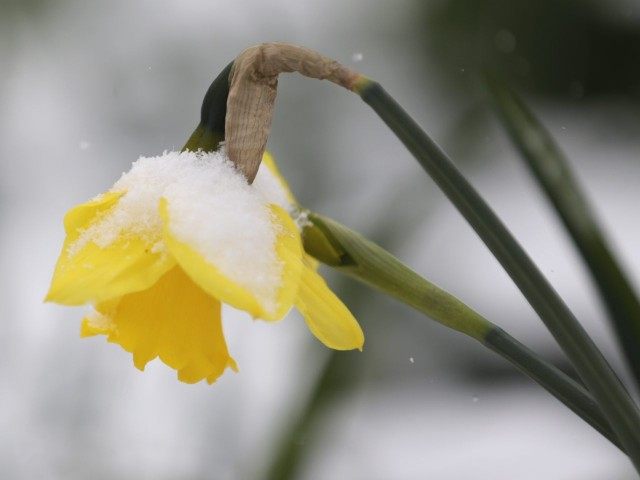Bitter cold across the eastern U.S., caused by Arctic air and a rapidly weakening El Niño weather condition, threatens widespread damage to crops that could ignite a new round of food inflation.
El Niño’s warm fall and winter growing season this year helped drive U.S. food inflation down from 3.2 percent in early 2015 to about 0.8 percent last month. But as El Niño fades and plunging temperatures return, late season crop damage seems set to spike consumer food prices.
Glen Falls, NY set an all-time-record-low temperature of 7 degrees Fahrenheit on April 4, as freezing cold weather brought highs across the Northeast and Midwest far below normal for this time of year. Buffalo, NY had a high of 27, versus a normal of 50. Atlanta, GA reached 56, 25 degrees below the normal high of 71. In Omaha, NE, temperatures topped out at 36; the normal is 60. Several record cold highs were also reported across the Great Plains.
According to the Penn State Fruit Tree Production Guide, a 90 percent kill of apples, cherries and peaches can occur with temperatures of about 25 Fahrenheit for 30 minutes or more during this time of year.
This year’s combination of a very mild winter, above-average temperatures during March, and the most recent bout of below-freezing temperatures is believed to have already caused substantial damage to eastern fruit crops.
Chris Harner, of Harner Farms in State College, Pennsylvania warns Accuweather that fruit trees in the blossoming stage, as opposed to budding, are very susceptible to damage with temperatures in the middle to upper 20s.
Mid-Atlantic grape growers are already utilizing wind machines and bonfires to prevent the cold waves from killing their vines. But many worry that next week’s freezing temperatures could overwhelm their efforts and cause widespread crop loss.
Midwest soybean farmers are also holding their breath as freezing temperatures are expected to reach to reach all the way into the southern U.S next week. They fear that late-season, above-ground leaf tissues could cause damaged grain quality from exposure to 30-to-32 degree Fahrenheit temperatures. But if temperatures drop below 30 degrees for an extended period of time, the freeze can kill their soybean plants.

COMMENTS
Please let us know if you're having issues with commenting.